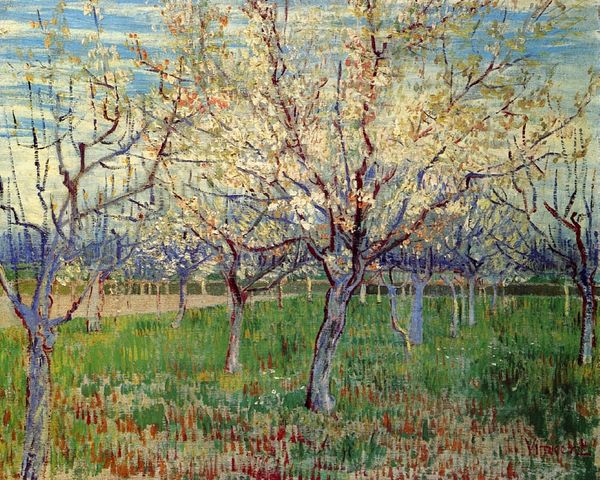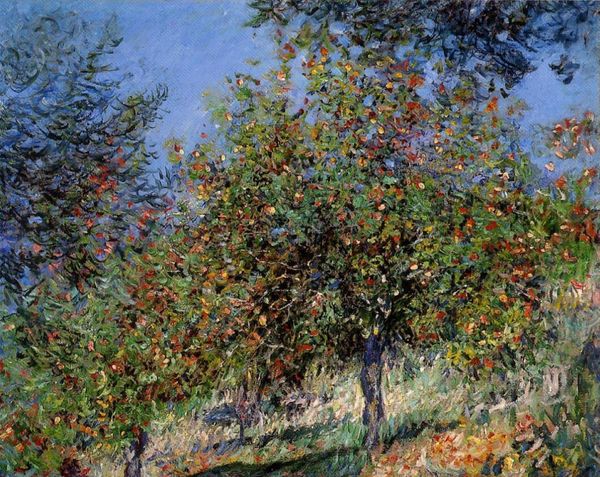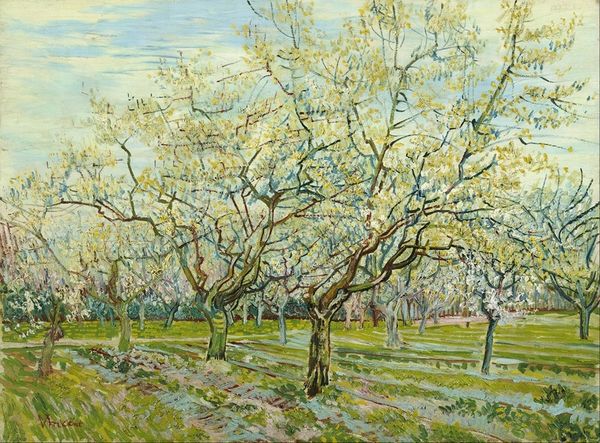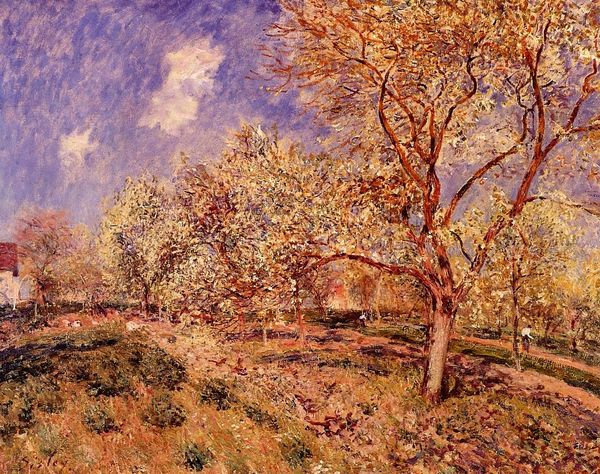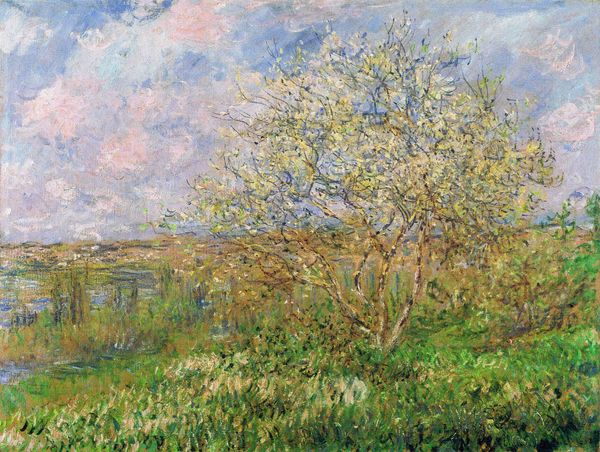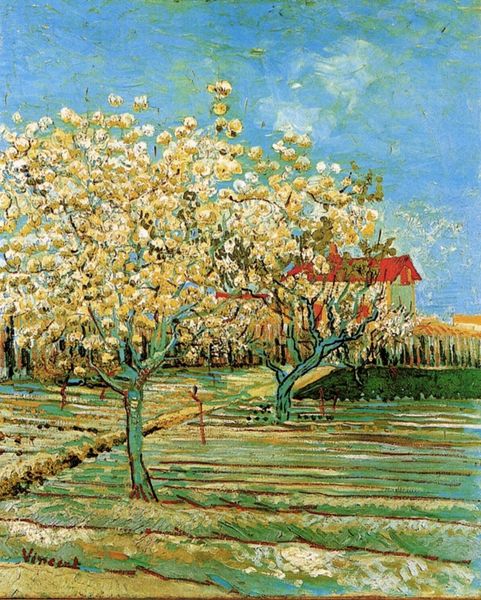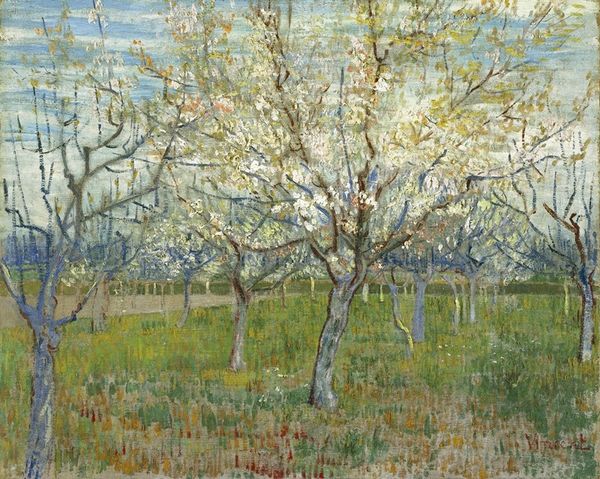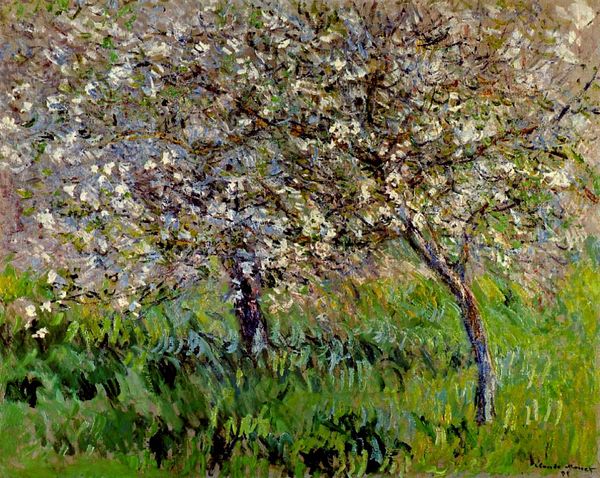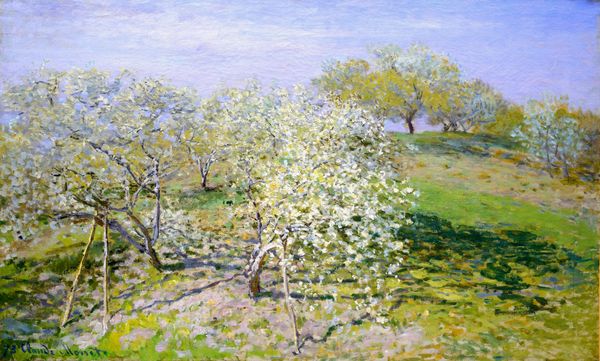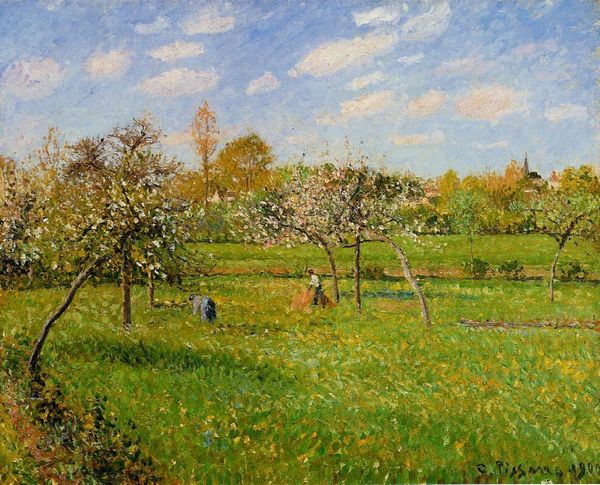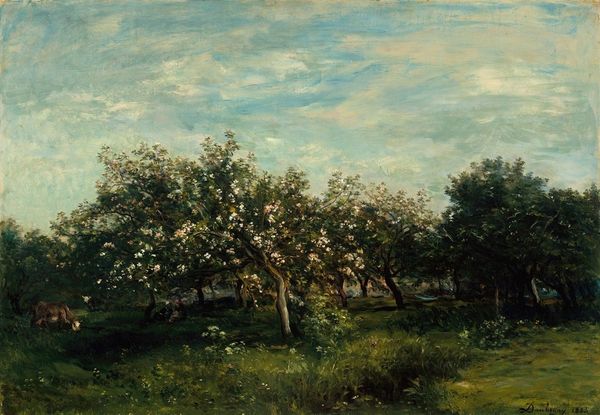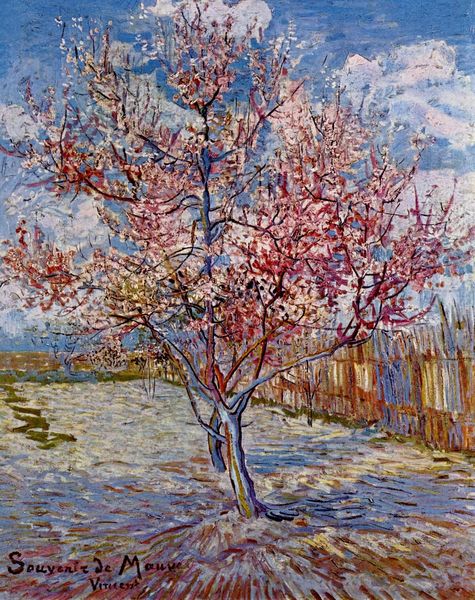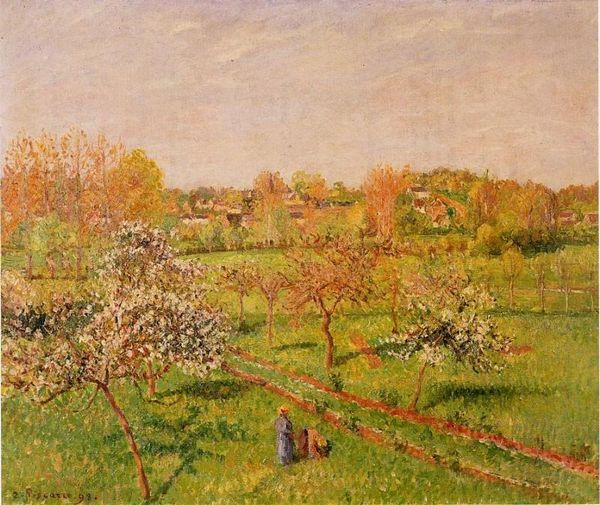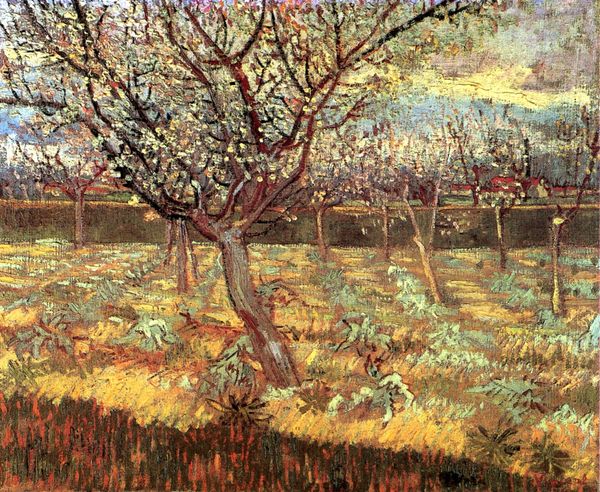
painting, plein-air, oil-paint
#
tree
#
impressionist
#
painting
#
impressionism
#
plein-air
#
oil-paint
#
landscape
#
impressionist landscape
#
oil painting
#
plant
Copyright: Public domain
Editor: Here we have Monet’s "Tree in Flower near Vetheuil" from 1879, rendered with oil paints. I'm immediately struck by the texture and dappled light. How do you interpret this work from a purely visual perspective? Curator: Focusing solely on its internal properties, notice how Monet constructs the scene through distinct, visible brushstrokes. The tree isn't defined by continuous lines but by juxtaposed dabs of color. Consider the formal arrangement; the tree dominates the composition, positioned slightly off-center. How does this asymmetry influence your perception? Editor: It makes it feel more natural, less posed. But it also kind of pulls my eye toward the right side of the painting, toward the field. Curator: Precisely. Observe the chromatic relationships. The blues and yellows in the sky echo, though in a muted way, within the blossoms of the tree. This interplay of color unifies the composition. Consider how Monet’s application of paint, in short, broken strokes, contributes to the overall sense of transience and the fleeting moment. Editor: So, he's not just painting a tree; he's painting a feeling, almost? Is the lack of clearly defined forms crucial to understanding it? Curator: Absolutely. The formal elements – color, texture, composition – converge to evoke a sensation. He’s dissecting light itself. Is this an innovative style to your eye, and do you think he communicates those fleeting effects through form? Editor: Definitely. It's less about representation and more about capturing an impression. I see that much clearer now, thinking about his broken strokes of paint. Curator: Indeed. Analyzing solely its form, we can see how it challenged traditional approaches to art-making and influenced generations of artists focused on abstract form, not historical meanings. Editor: Thanks, I am really appreciating seeing Impressionism from a totally different perspective.
Comments
No comments
Be the first to comment and join the conversation on the ultimate creative platform.
